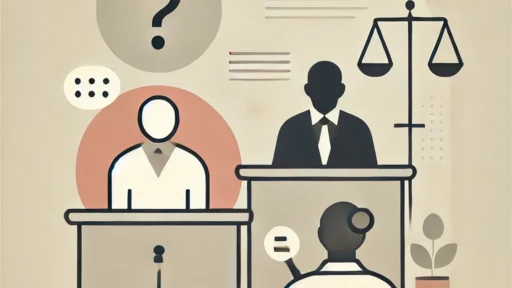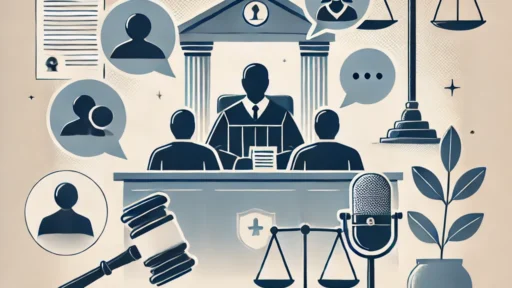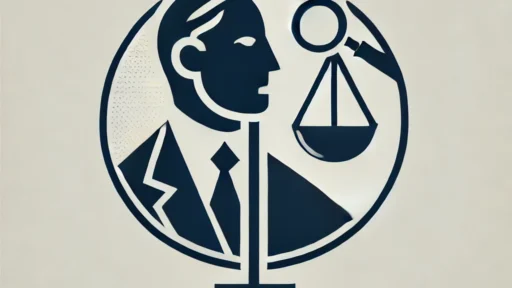Navigating the legal landscape can be daunting, especially when it comes to depositions. Understanding who’s who in a deposition is crucial for anyone involved in legal proceedings. This article sheds light on the key participants and their roles, helping demystify the process.
From the deponent to the court reporter, each participant plays a vital role in ensuring the deposition runs smoothly. By familiarizing yourself with these roles, you’ll be better prepared to handle the intricacies of legal depositions. Whether you’re a legal professional or someone facing a deposition, this guide will provide the clarity you need.
![]()
The Role of the Deponent
The deponent plays a crucial role in a deposition. They provide essential information and answer questions under oath.
Responsibilities of the Deponent
The primary responsibility of the deponent involves truthfully answering questions posed by attorneys. Accuracy is paramount, as their testimony can significantly impact legal proceedings. Deponents must listen carefully and ensure they understand each question before answering. If a question is unclear, they should request clarification rather than guess or assume.
Preparation Tips for Deponents
Preparation is vital for a deponent. They should review relevant documents and discuss potential questions with their attorney. Practicing responses beforehand can help build confidence and ensure clarity during the actual deposition. Deponents should dress professionally, arrive on time, and remain calm throughout the process to present themselves credibly. It’s essential to take breaks if needed, provided the opposing counsel agrees.
Attorneys and Their Functions
Attorneys play vital roles in depositions, guiding their clients, questioning witnesses, and strategizing for trial. They ensure the deposition process adheres to legal standards.
Plaintiff’s Attorney
The plaintiff’s attorney represents the individual or party bringing the lawsuit. They have several key functions:
- Prepares the Plaintiff: They review relevant facts and potential questions with their client beforehand.
- Questions the Deponent: They ask questions designed to support the plaintiff’s claims and gather evidence.
- Challenges the Defense: They object to improper questions and ensure the defense follows legal protocols.
- Prepares the Defendant: They discuss case details and potential deposition questions with their client.
- Defends the Deposition: They object to questions that are inappropriate or outside the scope of discovery.
- Cross-Examines the Plaintiff: They ask the plaintiff questions to identify inconsistencies or weaknesses in their case.
The Court Reporter’s Role
A court reporter ensures accurate documentation of spoken words during depositions. They create an official record that is vital for legal proceedings.
Importance of Accurate Transcriptions
Accurate transcriptions by court reporters preserve the integrity of the deposition record. Misquotes or omissions can impact case outcomes. Court reporters use stenography or voice writing to capture every word spoken. The resulting transcript is used for trial preparation and may be admitted as evidence.
Interaction with Other Participants
Court reporters interact with attorneys, witnesses, and other participants to ensure clarity and accuracy. They ensure that speakers identify themselves and speak clearly. Attorneys may request the court reporter to read back portions of the transcript during the deposition. Court reporters also mark exhibits and manage the inclusion of non-verbal communications in the record. Their impartial role helps maintain procedural fairness throughout the deposition process.
Expert Witnesses: Their Contribution
Expert witnesses play a vital role in depositions, offering specialized knowledge that aids in clarifying complex issues. They provide objective insights grounded in their specific fields of expertise.
Types of Expert Witnesses
Several types of expert witnesses exist, each contributing unique insights based on their specialty:
- Medical Experts: Medical experts (e.g., doctors, surgeons) evaluate injuries, treatments, and medical histories.
- Financial Experts: Financial experts (e.g., accountants, economists) analyze economic losses, business valuations, and financial statements.
- Forensic Experts: Forensic experts (e.g., criminologists, forensic accountants) investigate and interpret evidence in criminal and civil cases.
- Engineering Experts: Engineering experts (e.g., civil engineers, mechanical engineers) assess structural failures, construction defects, and product designs.
- Technical Experts: Technical experts (e.g., IT specialists, software developers) provide insights on technology-related issues like software malfunctions and cyber incidents.
How Expert Witness Testimonies Impact a Deposition
Expert witness testimonies profoundly affect the outcome of depositions. They serve several critical functions:
- Clarification of Complex Matters: Expert witnesses translate complicated topics into comprehensible information for attorneys and the court.
- Support for Legal Arguments: They provide evidence-backed opinions that bolster the cases of the plaintiff or defendant.
- Assessment and Interpretation: Experts deliver analyses and interpretations that help in understanding case-specific details.
- Credibility to Testimony: Their professional background lends credibility, making their testimonies persuasive during legal proceedings.
- Dispute Resolution: Expert witnesses help resolve disputes by offering impartial and educated viewpoints.
By leveraging their specialized knowledge, expert witnesses significantly influence the clarity, accuracy, and overall direction of legal depositions.
Understanding the Role of Legal Assistants
Legal assistants play a vital role in the deposition process, providing essential support to attorneys and ensuring smooth proceedings. Their involvement includes assisting with documentation, coordinating schedules, and maintaining organization.
Tasks Legal Assistants Perform
Legal assistants handle various tasks in depositions:
- Document Preparation: They prepare and organize documents, evidence, and exhibits.
- Scheduling: They coordinate deposition dates with all parties, ensuring availability.
- Transcription Management: They manage deposition transcripts, including reviewing and formatting.
- Communication: They communicate with clients, witnesses, and experts to relay necessary information.
- Research: They conduct legal research to assist in case preparation.
How They Support Attorneys During Depositions
During depositions, legal assistants provide critical support:
- Logistics: They ensure all necessary materials and equipment are available.
- Note-taking: They document key points and questions raised during the deposition.
- Technical Assistance: They handle audio, video, and other technical aspects of the deposition.
- Follow-up: They manage post-deposition tasks such as summarizing key findings and organizing follow-up actions.
The assistance provided by legal assistants enhances the efficiency and effectiveness of the deposition process.
Observers and Non-Essential Participants
Observers and non-essential participants can sometimes be present during depositions. While they don’t play a direct role in the proceedings, their presence may still affect the dynamics of the deposition.
Who Can Be an Observer?
Observers typically include individuals like family members, friends, or colleagues of the witness. Law students or interns may also observe to gain practical experience. In some cases, members of the media might attend if the deposition’s content holds public interest.
The Impact of Their Presence
The presence of observers can add pressure to the witness. If family members are present, they can offer emotional support but may also unintentionally cause the witness to feel more nervous or stressed. Media observers can elevate the stakes, particularly when public scrutiny is involved. Conversely, law students and interns, who are there for educational purposes, generally have a negligible impact on the proceedings.
Navigating the Dynamics Among Participants
Deposition dynamics can significantly impact the outcome. Understanding these interactions helps navigate legal complexities.
Common Interactions and Their Significance
Interactions in a deposition define the flow of information. Attorneys question witnesses to obtain factual and relevant responses. Court reporters capture these exchanges verbatim, ensuring an accurate record. Expert witnesses provide impartial insights, often clarifying complex testimony.
Legal assistants aid attorneys by managing documents and technology, facilitating a smooth process. Observers add subtle influences, often modifying witness demeanor based on perceived scrutiny or support.
Conflict Resolution and Professional Conduct
Conflicts in depositions arise from disputes over questions or behavior. Attorneys object to questions to preserve the record for future rulings. Maintaining professionalism is crucial; hostile behavior can lead to sanctions or influence case outcomes. Clear, calm communication and adherence to procedural rules mitigate conflicts, ensuring a focused and respectful deposition environment.
Elevate Your Deposition Process with BlueNotary
Understanding the key participants in a deposition and their roles is essential for navigating the legal process effectively. Each participant, from attorneys to observers, plays a crucial role in ensuring that the deposition runs smoothly and professionally. Their interactions and the dynamics they bring to the table are pivotal in achieving a fair and accurate record of the proceedings.
Ready to streamline your deposition process? BlueNotary offers a state-of-the-art online notarization platform that takes the hassle out of legal documentation. Secure, efficient, and convenient—BlueNotary empowers you to complete notarizations from anywhere, ensuring your deposition preparation is seamless.
Don’t let paperwork slow down your case. Visit BlueNotary today and experience the future of notarization. Take control of your legal journey with ease and confidence!
Frequently Asked Questions About Who is Present at a Deposition
Q1. Who is the deponent in a deposition?
The deponent is the individual giving testimony during a deposition. They answer questions under oath, providing information relevant to the case.
Q2. What is the role of the court reporter in a deposition?
The court reporter transcribes everything said during the deposition, creating an official record of the proceedings. This transcript can be used later in court.
Q3. How does an attorney participate in a deposition?
Attorneys represent their clients during a deposition. They ask questions, object to inappropriate queries, and ensure their client’s rights are protected throughout the process.
Q4. What is the function of an opposing counsel in a deposition?
The opposing counsel, representing the other party, asks the deponent questions to gather information, challenge testimony, and build their case.
Q5. Can expert witnesses be part of a deposition?
Yes, expert witnesses can be deposed to provide specialized knowledge or opinions relevant to the case. Their testimony can help clarify complex issues for the court.






